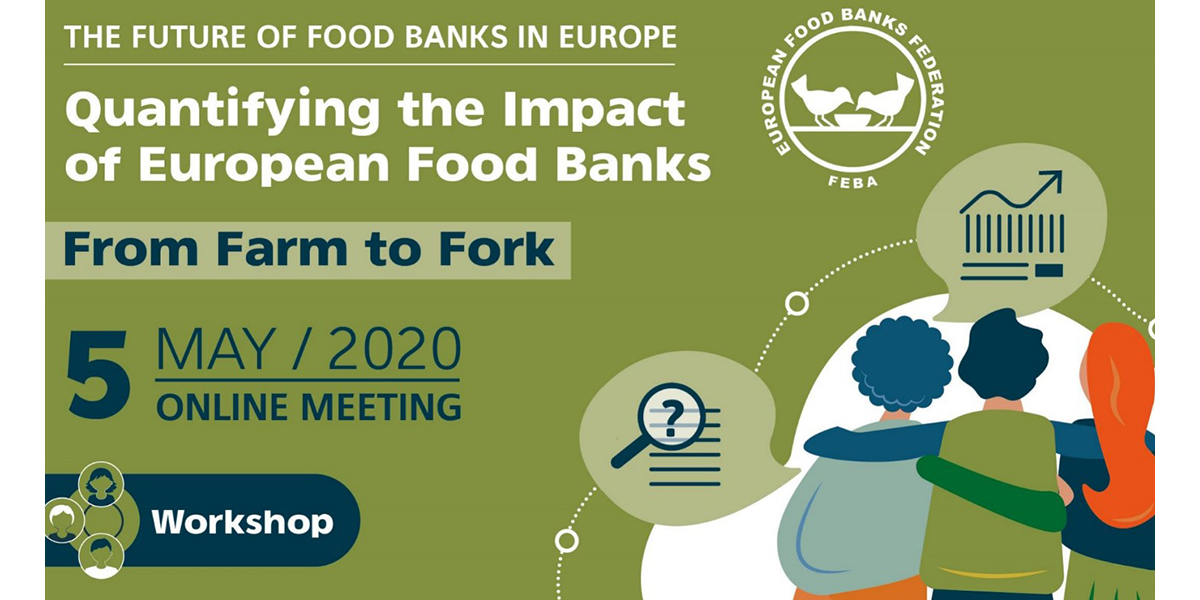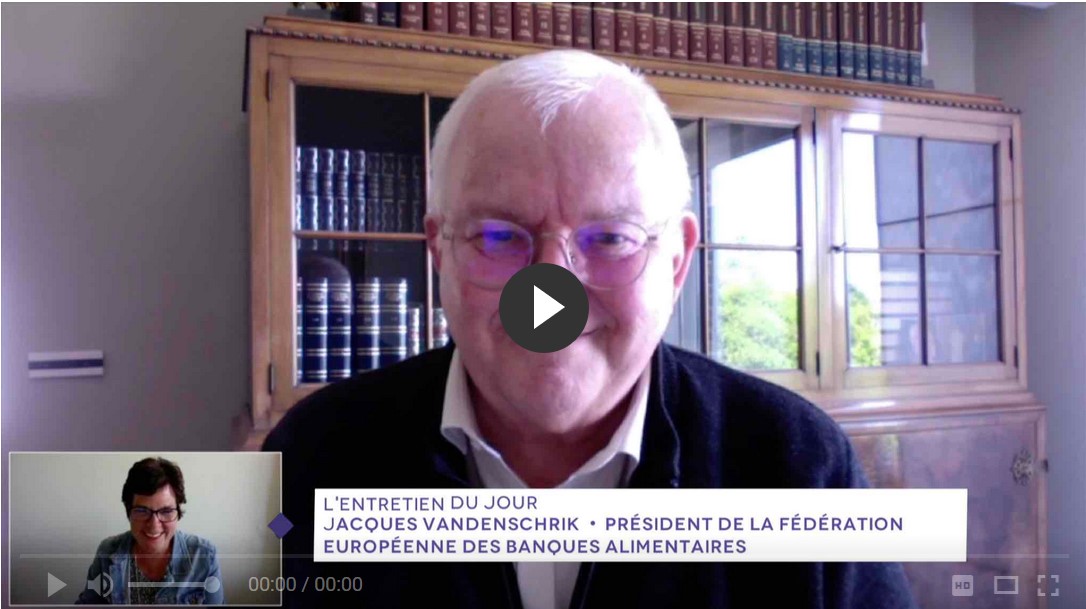European Food Banks Federation

date: 20/06/2020
Data Collection Project goes on!
Quantifying the Impact of European Food Banks from Farm to Fork.
In 2018, the European Food Banks Federation (FEBA) launched the project “The Future of Food Banks in Europe. Preparing the 20s”, awarded with a grant by DG Health and Food Safety, European Commission. The project aims to expand and strengthen the network of the European Food Banks Federation in the EU.
This year, FEBA started working on quantifying the impact of European Food Banks. The activity is made of three milestones:
- Definition of common KPIs, dataset structure and data collection strategies;
- Development of an Observatory on food donation;
- Promotion and dissemination of the Observatory on food donation.
Following the kick-off meeting on 2 March 2020, the first online workshop for the Pilot Group took place on 6-7 April 2020 with the main objective to identify common KPIs and impact indicators across Food Banks, discuss about which are the missing metrics and how data might look like with a platform’s web frame proposal.
The second online workshop "Quantifying the Impact of European Food Banks From Farm to Fork - Make Data Speak" took place on 5 May 2020.
The workshop was structured as an umbrella session, under which, three main messages found place:
- Make data speak means first of all boost internal awareness, benchmarking and benchlearning (within FEBA network);
- Data should speak the language of recipients; this means planning dedicated communication to the diverse stakeholders;
- Good Information with sound data and effective stories can help fund raising.
The triple topic was addressed from the perspective of Food Banks but also with the support of external experts.
You can access the report of the second online workshop here.
The next online workshop will take place on 23 June 2020 and will focus on the Economic Impact of European Food Banks.
Interview of the President of the European Food Banks Federation by a Belgian local TV channel about the impact of COVID-19 on the work of Food Banks.

© Notélé
European Food Banks’ initiatives to prevent food waste
FEBA daily shares news on its website (news section) and on the Social Emergency Fund webpage dedicated to the COVID-19 emergency period, regarding actions taken by European Food Banks at national level to tackle food waste during this period of emergency.
Discover the initiatives carried out in May in Albania, Belgium, France, Greece, Hungary, Lithuania, Netherlands, Norway, North Macedonia, Spain and UK.
- In Albania, in the past 3 months, the recovery of fresh food products has tripled to 20 tonnes per month and the Food Bank is redistributing surplus food more than ever (link to the article here).
- In Belgium, the equivalent of 30,000 lorries of potatoes are stuck in the hangars. In Flanders, in collaboration with the Flemish government, the donation of surpluses to the Food Bank has begun. Food banks in Belgium received 25 tons of potatoes every week until 25 May (link to the article here).
- In France, American Airlines donated 14 pallets soft drinks and grocery products to the food bank in Paris. The pallets containing juices, sodas, cookies, pretzels etc were redistributed to charities like social supermarkets, homeless care service or centres for single mothers (link to the article here).
- In Greece, due to the lockdown, significant food supplies, especially from some companies, could end up in the trash if there was no mechanism to use them and make them available to people in need. The Food Bank in Greece never stopped saving tonnes of surplus food to support the most deprived during the crisis (read the full article here).
- In Hungary, the emergency caused by the coronavirus pandemic has also been associated with the accumulation of food reserves in many households. The Hungarian Food Bank set up several collection points across the country where residents can donate surplus food by 16 June 2020 (read the full article here).
- In Lithuania, the Food Bank invited citizens to give accumulated food stocks to people in need (link to access the article here).
- In the Netherlands, the Groente & Fruitbrigade has saved 1,000,000 kilos of fruit and vegetables from waste and delivered them to Food Banks thanks to the involvement of volunteers and new suppliers. These are fruit and vegetables with a spot or a slightly different shape or colour, which are still perfectly suitable for consumption (link to access the article here).
- In Norway, the Food Bank has launched a pilot project called “Matsentralen Kitchen” (MSK). Read the full article and see the video here.
- In North Macedonia, the Food Bank is making an incredible effort to save surplus food and help the most deprived in the country (read the article here).
- In Spain, Nespresso’s Arroz Solidario (Solidarity Rice) project uses the coffee grounds in the recycled capsules to make an agricultural compost to grow rice. For the ninth year, the rice has been donated to the Spanish Federation of Food Banks (FESBAL), which will distribute it throughout the country. Since 2011, more than 960 tonnes of rice have been donated thanks to Nespresso’s recycling project (read the article here).
- In the United Kingdom, FareShare doubled the amount of redistributed food during coronavirus (link to the article here).
